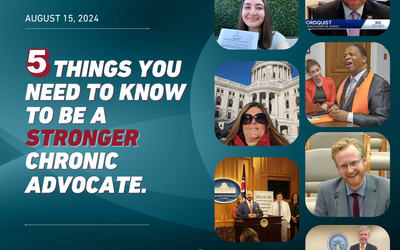
This month, we’re highlighting ways to make a real impact for those living with chronic conditions. From supporting the Living Organ Donor Tax Credit Act to providing resources for Diabetes Awareness Month, we’re empowering patients through advocacy, education, and connection. We’re also diving into strategies for amplifying your advocacy efforts and addressing the healthcare challenges posed by political shifts. Together, we can drive change—take action, get inspired, and stay informed!
1. Third Step in Activism: How to Amplify Your Efforts
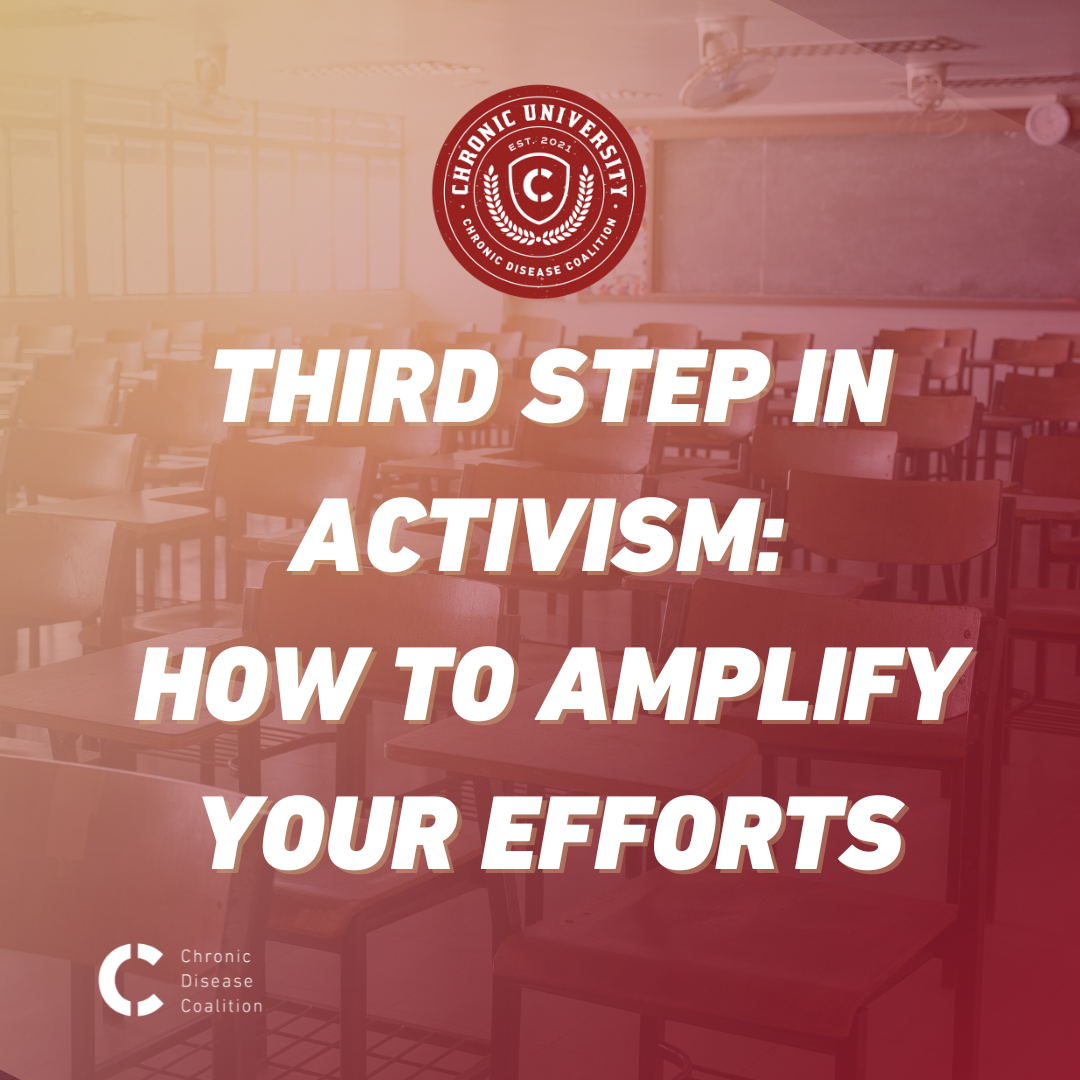
Want to take your advocacy to the next level? The latest Chronic University session, How to Amplify Your Efforts, is here to help! Featuring valuable insights from CDC ambassadors Anna Williams, CJ Walker, and Dustin Miller, this session explores how to connect with advocacy and support groups, leverage digital platforms like Facebook, and share your story to inspire change.
Watch now and empower your advocacy journey! Click here to watch.
2. Support Living Organ Donors by supporting the Living Organ Donor Tax Credit Act (H.R. 6171)
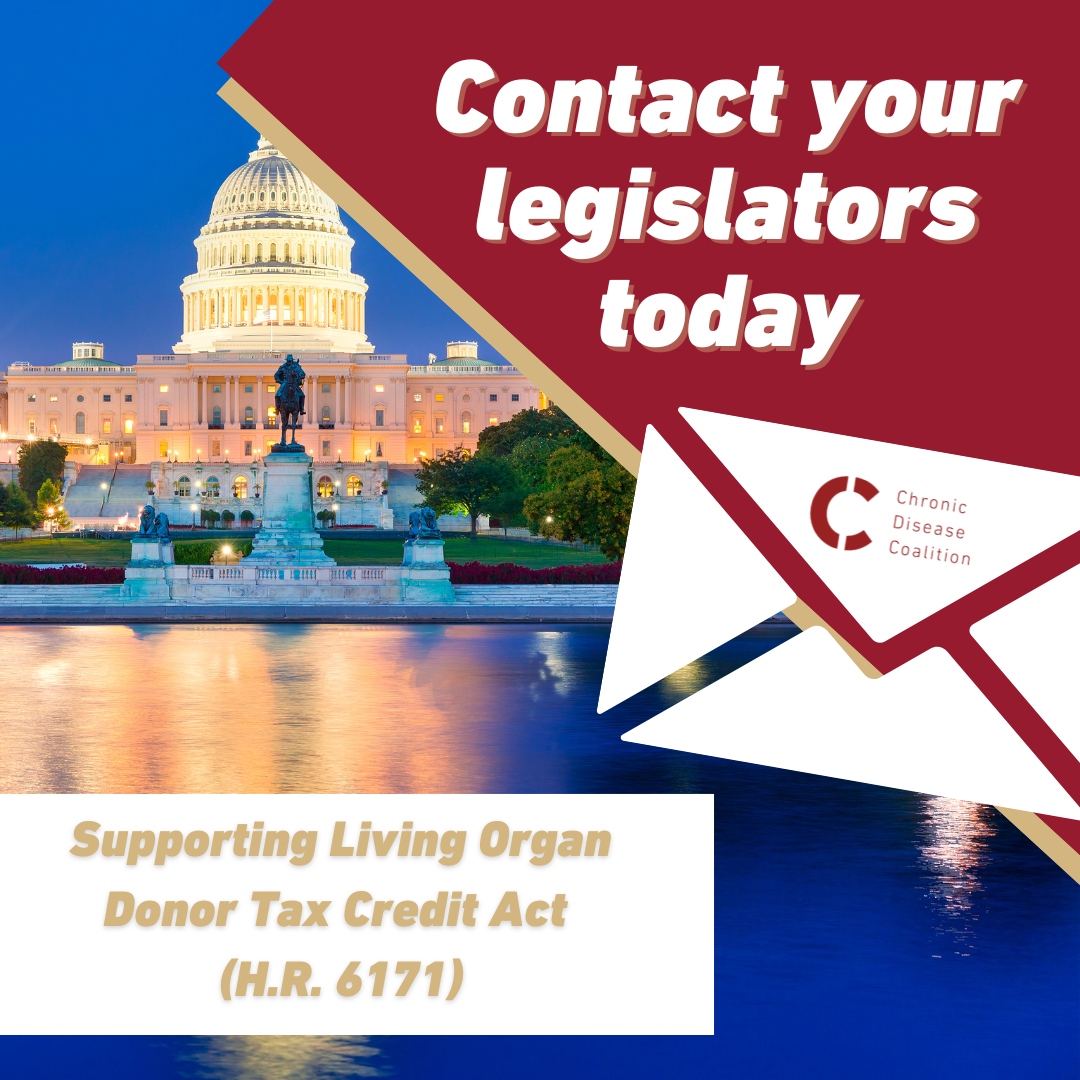
Organ donors give the ultimate gift: a chance at life for people facing serious health challenges. But the high costs of travel, lodging, and missed work stop many from donating. The Living Organ Donor Tax Credit Act (H.R. 6171) would help by giving donors a $5,000 federal tax credit. Join us in urging Congress to pass this bill—let’s make it easier for people to save lives! Take action now.
3. Diabetes Self-Management: You Are Not Alone
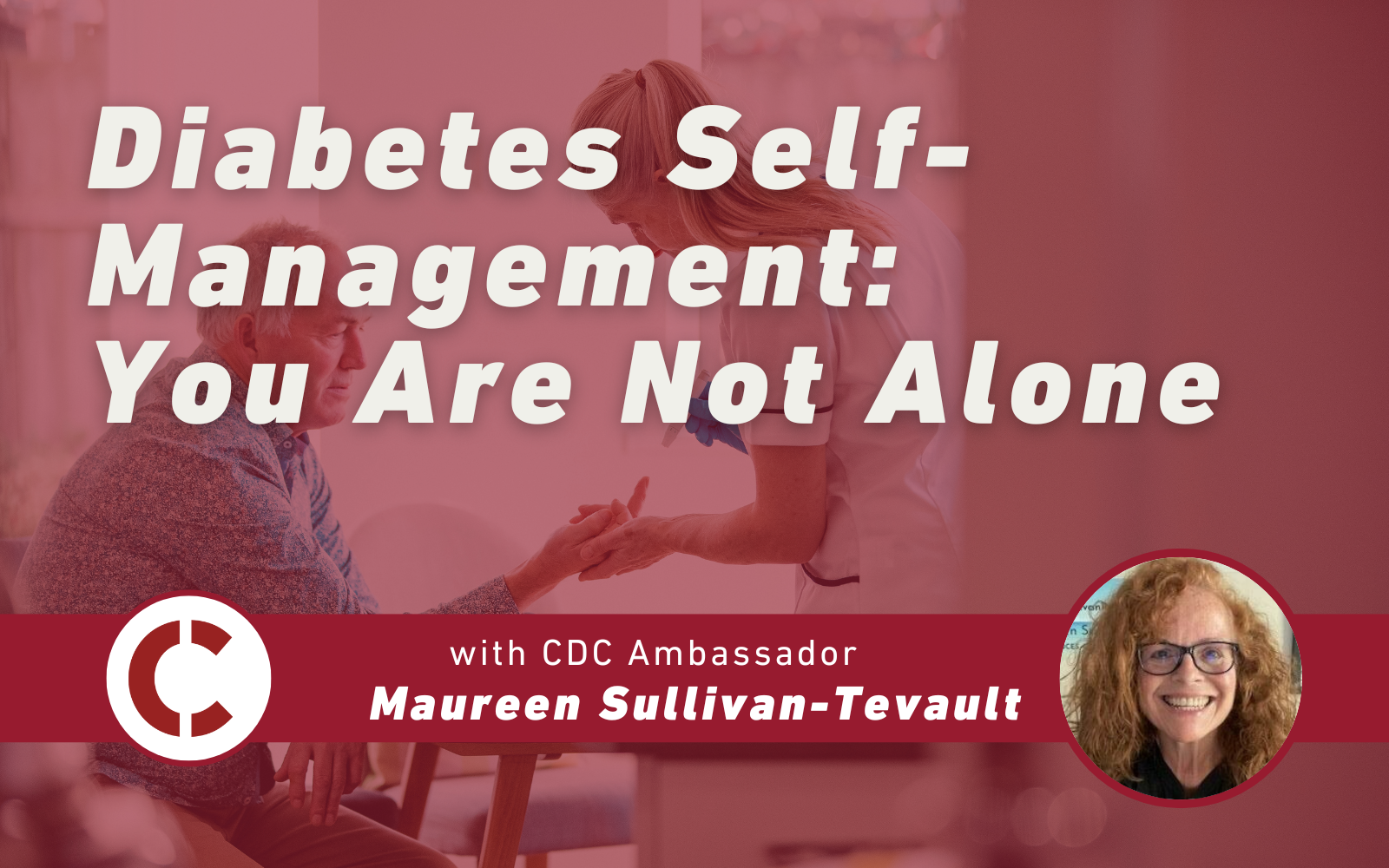
CDC Ambassador Maureen Sullivan-Tevault, a Registered Nurse and Certified Diabetes Care and Education Specialist, is passionate about helping people with diabetes feel supported and informed. Maureen knows how overwhelming diabetes can be, and she believes no one should have to manage it alone. With the right resources and education, like the Diabetes Self-Management Education program, people can feel more confident and in control of their health. Read more here.
4. Monitoring Healthcare Policy In a Time of Change

The recent shift in political power—with Republicans gaining control of both the Presidency and Congress—signals potential sweeping changes to healthcare policy that could impact everything from Medicare to drug pricing and the Affordable Care Act (ACA). For patient advocates, this is a crucial time to stay informed and engaged. State-level advocacy will play a vital role in ensuring continued access to essential care for those with chronic conditions. Now more than ever, your voice is needed to help protect and shape healthcare policies that support our community. Read more here to learn how you can prepare and take action.
5. Ambassador Spotlight: CJ Walker
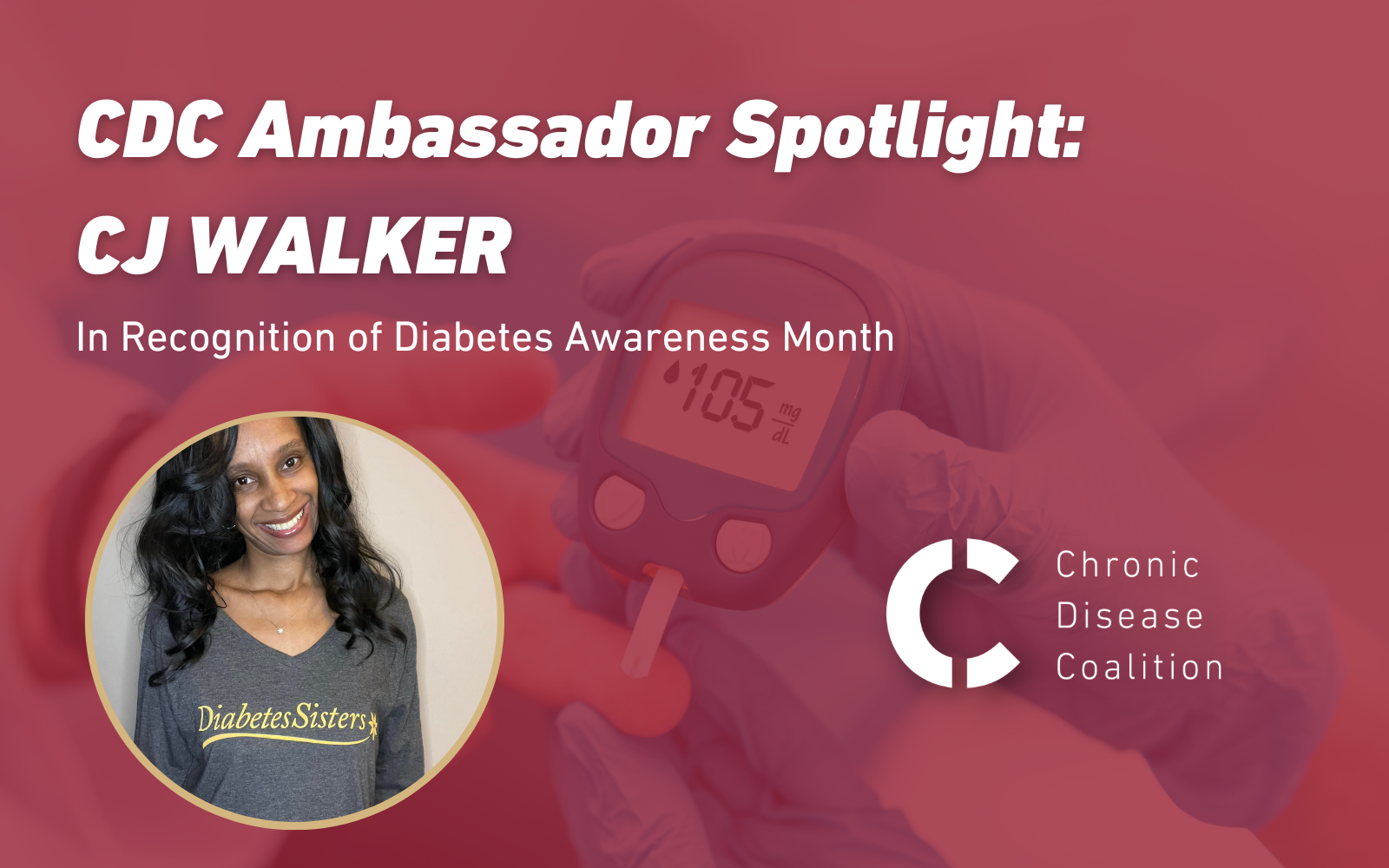
CDC Ambassador Maureen Sullivan-Tevault, a Registered Nurse and Certified Diabetes Care and Education Specialist, is passionate about helping people with diabetes feel supported and informed. Maureen knows how overwhelming diabetes can be, and she believes no one should have to manage it alone. With the right resources and education, like the Diabetes Self-Management Education program, people can feel more confident and in control of their health. Read more here.